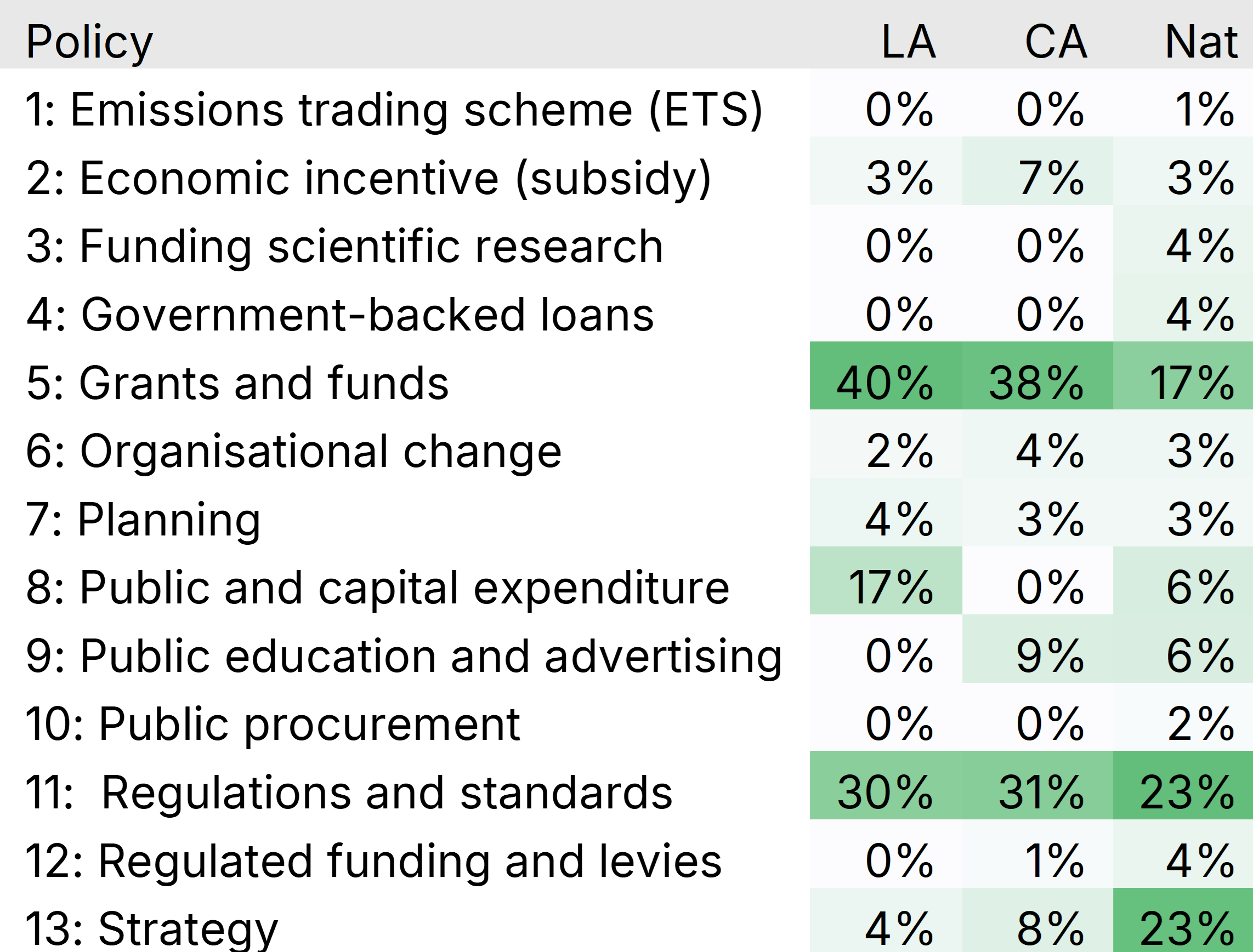Better policy translation to achieve just net zero transitions locally
A just transition to net zero requires policymakers and practitioners at the local level to be able to draw on a wide range of national policy instruments. This brief makes recommendations on how the policy translation process from the national to the local level can be improved.
About the research
The UK’s credibility as a climate leader hangs in the balance. While reductions in energy demand have been the main driver of carbon emission reductions to date, the decarbonisation of electricity supply receives significantly more policymaking and public attention. To achieve net zero, more attention needs to be focused on accelerating change across all other sectors of the economy including housing, transport, agriculture, and manufacturing as well as consumption patterns, from national to local levels.
Set within this context, this research sought to understand the role that national net zero policymaking plays in delivery at a local level. To this end, we analysed local and combined authority Climate Action Plans (CAPs) in the West Yorkshire Combined Authority (WYCA) and West of England Combined Authority (WECA) areas, and the Carbon Budget Delivery Plan at the national level.
Our analysis focused on actions that are being implemented or scheduled through wording such as ‘establish’, ‘commit’, ‘ensure’ etc. ideally with a dedicated budget. Aspirations and what actors might do, especially with regards to phrasing such as ‘explore’, ‘consider’, ‘strive’, ‘develop a plan’, ‘investigate’ etc., were excluded. Alongside these reviews, we conducted ten interviews and two workshops, one in Bristol (WECA) and one in Leeds (WYCA), with local authority climate change managers and local net zero delivery stakeholders to provide context and explanations.
Key findings
- In the national level Carbon Budget Delivery Plan a wide range of policy instruments are explicitly mentioned although the focus lies mainly on Strategy and Regulations and standards which account for nearly a quarter each of policy instruments mentioned, and, to a lesser extent, Grants and funds.
- At both Local Authority (LA) and Combined Authority (CA) levels, fewer national policy instruments are mentioned. Grants and funds account for around 40%, and Regulation and standards account for around 30% of instruments mentioned.
- Government-backed loans and Funding scientific research are only mentioned in the national level Carbon Budget Delivery Plan. This is unsurprising given the highly centralised governance structure in the UK.
- Public and capital expenditure is frequently mentioned at the national level, very frequently at LA level, but not at CA level. This is the result of LAs’ ownership of assets and (limited) tax raising and spending capacity, and CAs’ weak capacity limited entirely to tax spending.
- The competitive nature of Grants and funds allocation, such as the Public Sector Decarbonisation Scheme (PSDS), creates uncertainty, requires significant resourcing to apply, and leads to uneven distribution. Additionally, their allocation in tranches incentivises gaming among suppliers with delivery costs increasing due to the peak in demand once funding has been made available.
- Several key Regulations and standards, such as Minimum Energy Efficiency Standards (MEES), have been partially repealed since the CAPs were written. This increases uncertainty regarding the regulatory framework for future action.

Policy recommendations
Provide certainty in Grants and funds allocation: A less competitive Grants and funds allocation process, such as the one used to allocate Local Electric Vehicle Infrastructure (LEVI) funding, would significantly reduce the amount of time wasted by understaffed local authorities applying for grants; and make it easier to develop local supply-chains and skills, and attract private finance.
Provide certainty on Regulations and standards: More certainty enables local authorities to develop coherent visions and long-term strategies which support both local and national supply and value chain development by driving down the cost of low-carbon technologies and their installation in the long-run. Such long-term demand-side certainty also encourages social value creation alongside net zero delivery.
Diversify the policy instruments used to accelerate local delivery: Beyond the carrot (Grants and funds) and the stick (Regulations and standards) more flexible and targeted Planning and Public procurement procedures can create greater dynamism, reduce risk, and support innovation in collaborative local net zero delivery.
Conclusion
We found only a limited translation of policy instruments from the national to the local level. With high uncertainty surrounding the most important instruments in this process (Grants and funds and Regulations and standards), local authorities’ limited choices often do not lead to the coherent or reliable long-term investments necessary to achieve net zero objectives. More certainty, long-term provision, and better communication amongst the relevant parties should help local authorities and practitioners contribute successfully to a just transition to net zero.
Authors
Dr Colin Nolden, University of Sheffield; Esmé McMillan, University of Bristol; Dr Jake Barnes, University of Oxford; Professor Morag McDermont, University of Bristol.
Further information
Project IMPERFECT (Implementing effective and just net zero policies) is funded by the British Academy as part of its Net Zero Governance Programme.
For further information see: McMillan et al 2024 and Nolden et al (2024)
